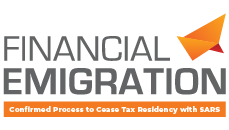The country’s active recruitment of talent, particularly in sectors like finance, engineering, and information technology, provides a compelling incentive for South Africans seeking new career horizons.
Attractive Tax Incentives
Beyond career prospects, the Dutch government’s provision of enticing tax incentives for highly skilled migrants is an additional drawcard. The Netherlands operates the 30% tax facility for foreign workers, representing a significant advantage for South African expatriates. This initiative allows individuals to receive 30% of their salary tax-free, making the Netherlands financially appealing for those seeking both professional growth and fiscal advantages. These incentives, particularly favourable in sectors like finance and technology, add an extra layer of motivation for South Africans contemplating a move to the Netherlands. The Netherlands’ efficient support systems for expatriates play a crucial role in easing the transition for South Africans. Programs like the International Expat Centre provide comprehensive assistance, covering various aspects such as customs, arrival, orientation, housing tours, and practical matters like social security, health insurance, and banking.
A Surging “Home Away from Home”
Remarkably, the Netherlands has become a veritable “home away from home” for South Africans. With an estimated 35,000 South Africans currently residing in the country, a substantial portion actively participating in the workforce, the Netherlands has transformed into a preferred destination for those seeking familiarity and community in a foreign land. Beyond economic considerations, the Dutch work/life balance has become a significant pull factor. Emphasizing “family/leisure time” and a standard workweek of around 35 hours, the Netherlands offers a lifestyle that resonates with South Africans seeking a more balanced and fulfilling professional and personal life.
Securing a Highly Skilled Migrant Residence Permit
To live and work in the Netherlands, one will require a Highly Skilled Migrant Residence Permit, which is available to foreign nationals who are considered able to make a contribution to the Netherlands’ knowledge-based economy. Successful applicants should have a job contract with an employer or research institution in the Netherlands, with a salary base that cannot be less than that of a Dutch national in the same position. In addition, certain salary criteria must be met: On January 1st, 2024, the salary criterion increased by 6.45% as compared with the gross monthly salary thresholds of 2023. Should the jobseeker be over the age of 30, the minimum gross salary of the Netherlands-based position must be €63,972 a year. If below 30 years of age, the employee should earn a minimum gross salary of €46,908 a year. The permit remains valid for up to five years, or for the duration of the employment contract.
Leading the cohort of in-demand skills in the Netherlands are engineering-related professions, with around 13% of all job advertisements relating to positions available in engineering, most significantly in mechanical, industrial, electrical, food, biomedical, energy, computer science and civil engineering. Also in demand are skilled, qualified candidates with expertise in human resources, ICT security, pedagogy, solar installation, healthcare, and construction.
Tax Considerations for South African Expatriates
For South Africans embarking on a journey to the Netherlands, a clear understanding of the tax consequences is vital. Comprehensive planning is essential, encompassing financial, tax, and healthcare considerations. Reviewing elements such as medical aid, life policies, assets, and retirement annuities is crucial to avoid financial and regulatory challenges both in South Africa and the Netherlands. Considering permanent or annual cessation of tax residency is also crucial for South Africans seeking to protect their foreign income from being taxed by SARS. While the Netherlands promises tax benefits, meticulous planning is essential for South African expatriates departing from their home country. Working with providers knowledgeable in the nuances of international tax ensures a seamless transition. This approach prevents expatriates from being sent on a confusing quest for financial and tax advice, allowing for a smoother integration into the Dutch tax system.



